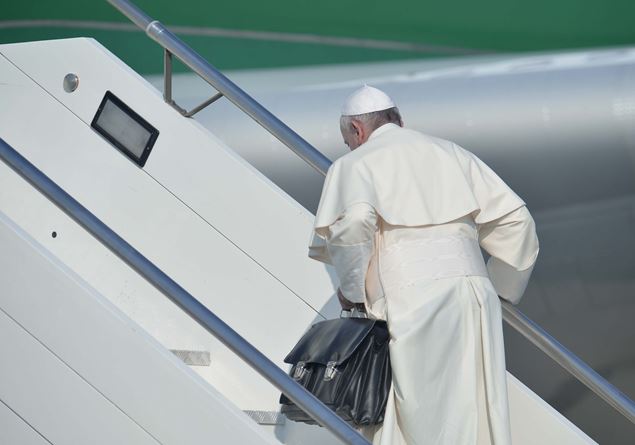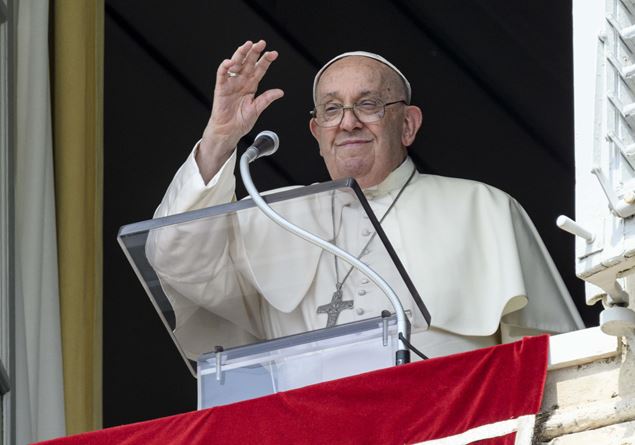«The extermination can neither be forgotten nor denied». Pope Francis makes a strong appeal, at the Angelus, for “everyone to collaborate in eradicating the scourge of anti-Semitism together with every form of discrimination and religious persecution” starting from the “horror” the horror of the extermination of millions of Jewish people and other faiths happened” 80 years ago. He remembers the liberation of the Auschwitz concentration camp, the victims of the Holocaust, and invites everyone to listen to the poet Edith Bruck, guest this evening on the program Che tempo che fa. He invites everyone to “build together a more fraternal and just world by educating young people to have a heart open to all in the logic of brotherhood, forgiveness and peace”.
The Pontiff is also concerned about the ongoing conflict in Sudan, which began in 2023, and which is causing death and suffering. He asks that “hostilities cease and that they agree to sit at a negotiating table”. It urges “the international community to do everything possible to get the necessary humanitarian aid to the displaced and to help the belligerents to quickly find paths to peace”.
But the Pope’s apprehension is also for Colombia, where «clashes between armed groups have caused many victims and more than 30 thousand displaced people. I express my closeness to them and pray.”
Then he recalls the World Day of Leprosy Sufferers by encouraging “those who work on behalf of those affected by this disease, helping those who recover to reintegrate into society, not to be marginalized”.
In a context full of critical issues, and remembering that journalists and communications workers “have celebrated their jubilee in recent days”, he urges them “to always be narrators of hope”.
Finally he asks the square to “listen to these good people who want to tell us something”, addressing the young people from the ACR of Rome who, with him, looked out the window at the end of the Caravan of Peace. And who remember that “you cannot pass the Holy Door alone”. They underline that “it would be nice if the great people of the Earth passed the Holy Door hand in hand thinking of all the children who are victims of violence, alone or sick, marked by war”. Also thinking “of the tears of many mothers, fathers, grandfathers and grandmothers, so they would be able to keep the guns quiet”. Passage, “silencing the weapons”, which the Pope has repeated.
Previously he had explained the Gospel of the day by recalling that, when Jesus, in the synagogue of Nazareth, the town where he grew up, reads the passage from the prophet Isaiah which announces the evangelizing and liberating mission of the Messiah and then, in the general silence, says: «Today this Scripture has come true”, no one believes him. His fellow citizens who know him very well and therefore should have been the first to open their minds are blocked precisely by this closeness. This happens to us too, when we think we know Jesus and don’t need to investigate further. «Jesus proclaims that, with his presence, “the year of the Lord’s favor” has arrived. It is the happy announcement for everyone and especially for the poor, for prisoners, for the blind, for the oppressed. This is what the Gospel says.” But «the Nazarenes failed to recognize Jesus as the anointed of the Lord. They thought they knew him too well and this, instead of facilitating the opening of their minds and hearts, blocked them, like a veil that obscures the light.” And so we too «can happen to us, like his fellow villagers then, to think that we already know him, that we already know everything about him, we grew up with him, at school, in the parish, in catechism, in a country of Catholic culture … And so for us too He is a close Person, or rather “too” close.” We must ask ourselves: «Do we perceive the unique authority with which Jesus of Nazareth speaks? Do we recognize that He is the bearer of a message of salvation that no one else can give us? And I, do I feel in need of this salvation? Do I feel that I too, in some way, am poor, prisoner, blind, oppressed? Then, only then, will the “year of grace” be for me too!».








